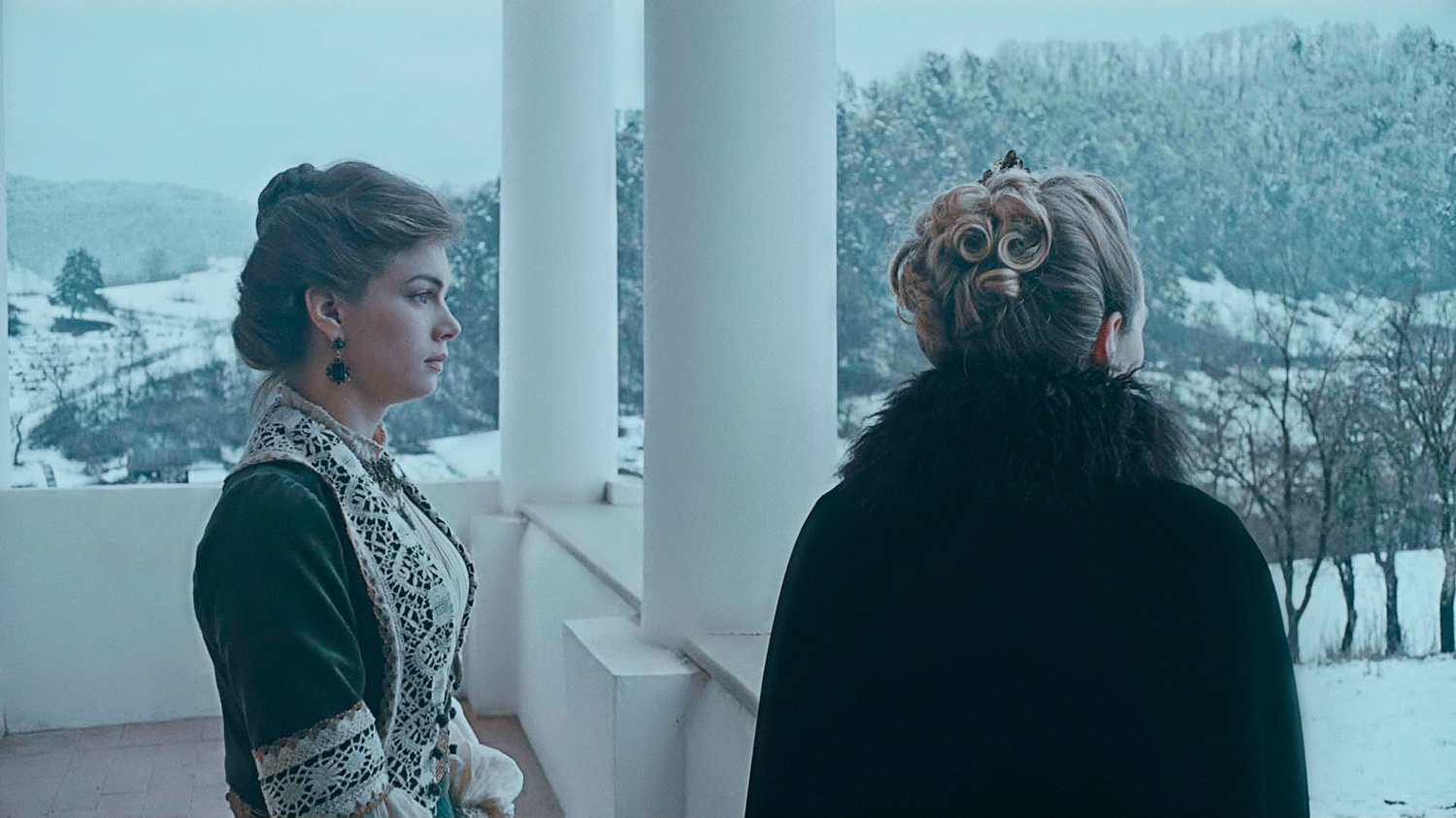
News
Harvard Quietly Resolves Anti-Palestinian Discrimination Complaint With Ed. Department

News
Following Dining Hall Crowds, Harvard College Won’t Say Whether It Tracked Wintersession Move-Ins

News
Harvard Outsources Program to Identify Descendants of Those Enslaved by University Affiliates, Lays Off Internal Staff

News
Harvard Medical School Cancels Class Session With Gazan Patients, Calling It One-Sided

News
Garber Privately Tells Faculty That Harvard Must Rethink Messaging After GOP Victory
From NYFF: ‘Malmkrog’ is a Punishing Philosophical Slog
Dir. Cristi Puiu — 2.5 Stars

It’s difficult to describe what kind of film “Malmkrog” really is. It unfolds over the course of a day in an aristocratic Transylvanian manor at the turn of the 20th century, as a host and four guests engage in deep philosophical debate. “Malmkrog” is divided into six chapters, each segmented by a shift in the topic of conversation. The film is, first and foremost, a philosophical debate, with negligible attention to character or plot. In it, director Cristi Puiu (who won the Un Certain Regard in the 2005 Cannes Film Festival for “The Death of Mr. Lazarescu”) challenges the classification of narrative films, and also the attention span of his audience.
The characters discuss topics with a relentless intensity, from war to religion, race, and morality. Suffice to say, one can certainly find profundity in “Malmkrog” — but Puiu’s film requires an insatiable amount of unbroken attention. Because there are few conventional elements, like narrative, characters seem stuck in a perpetual loop of discussion. That was probably the direction Puiu pursued, but it’s one that ultimately undermines any message that he wished to convey: Topics of debate that are at first engrossing quickly turn robotic and repetitive. Like most humans who inhabit this planet, this reviewer found that plowing through the film for 200 unrewarding minutes was a physically tiring task.
“Malmkrog” is thematically rich — I’d go so far as to say that some of the film’s self-aggrandizing gravitas is granted. But Puiu’s film is so glacially paced that whatever audience he manages to hook is quickly pummeled by an overwhelming urge to nap, packing the equivalent punch of a shot of NyQuil per minute.
One could make the argument that it is exactly the self-absorbed, unending nature of the film that Puiu draws our attention to — that the world’s fate rests on the laurels of a ruling aristocratic class so helplessly in love with the intelligence of their own thoughts. In that vein, it’s particularly self-aware that “Malmkrog” displays the last moments of a dying European aristocracy with the retrospective knowledge that the coming century would throw the continent into two World Wars and Transylvania into Communist rule. But if that was the point that Puiu wanted to convey, he doesn’t make a consistent case for it.
The crowning jewel of “Malmkrog” is its cinematography; Director of Photography Tudor Vladimir Panduru creates stunning compositions. He often frames characters within frames, within frames, using compositional tension to stoke striking questions: Are these characters so rooted in their social hierarchy that they’re incapable of seeing outside their bubble? Panduru also shoots with deep focus — sometimes, the audience is posited as an outsider, peeking through a doorway into the lives of people in this insular, wealthy society. The opening scene perfectly encapsulates how Panduru creates unease; as two characters have a conversation, the camera pans a few degrees to reveal a scene unfolding through a door, and back again repeatedly. It leaves the impression that this conversation, although it is as broad as the meaning of good and evil, of God and the devil, must be kept clandestine. And when Panduru has the full ensemble of characters on screen, he barely cuts: His camera glides as it reframes characters moving around, creating fluidity and naturalism. But that continuity is the very same feat that condemns the viewers of “Malmkrog” into a state of purgatory.
Puiu seems adamant on creating a film that isn’t coddled by something as disgustingly mainstream as characters or a narrative. In fact, the characters in "Malmkrog" are reduced to vessels of speech, held together by the lightest fabric of characterizations. Perhaps Puiu thought the philosophy deserved so much attention that the audience can’t afford to be distracted. "Malmkrog" says a lot, but rarely does the film feel like it’s engrossing enough to tell us something unique and worthwhile — or at least enough so to warrant undivided attention for over 200 minutes.
This begs the question — who is “Malmkrog” really for? It will definitely make a select minutia of film critics happy, but Puiu pushes the limits of what cinema can curtail — and what most audiences can endure — to get there.
—Staff writer Lanz Aaron G. Tan can be reached at lanzaaron.tan@thecrimson.com and on twitter @LanzAaronGTan1.
Want to keep up with breaking news? Subscribe to our email newsletter.
